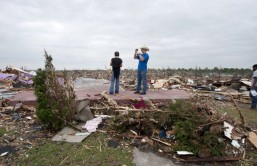Facebook Inc. announced Thursday that it will be using drones, satellites, and lasers to deliver affordable Internet connection in developing countries around the world.
Facebook and Internet.org have been working together for years now tofind ways on making every person in this world Web-connected. In the past year, they partnered with network providers in delivering mobile data and made a remarkable progress.
"Over the past year, our work in the Philippines and Paraguay alone has doubled the number of people using mobile data with the operators we've partnered with, helping 3 million new people access the Internet," said Facebook CEO Mark Zuckerberg in a blog post.
The social networking site will continue moving forward to reach its goal; however, to do such, new technology would be needed, and that is what their team is doing in the Connectivity Lab.
The team working at the Lab consists of experts in the National Aeronautics and Space Administration's (NASA) Jet Propulsion Lab (JPL), NASA's Ames Research Center and Ascenta, a UK-based company founded by the developers of Zephyr, the longest flying solar-powered unmanned aircraft.
According to a press release, "The team's approach is based on the principle that different sized communities need different solutions," sotheir next step will include launching of new delivery platforms likedrones and satellites that will match the needs of a certain region.
A low-Earth orbit and geosynchronous satellites will be used in regions with low population because it can beam Internet access to the ground. A solar-powered high altitude aircraft that can stay up for months, on the other hand, will be used in suburban areas in limited geographical regions.
Additionally, a Free-space optical communication (FSO) is the choice of technology to transmit data in all types of drones and satellites. It is apromising technology that increases the speed of internet connections provided by drones and satellites.








